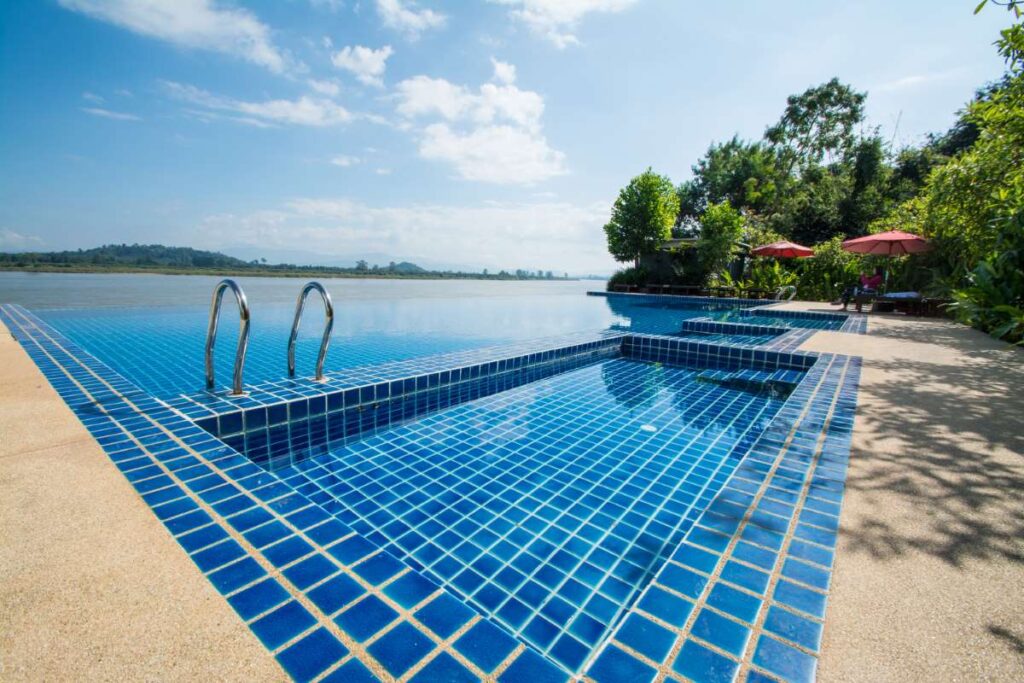The most common mistakes technicians make with filters can lead to inefficiencies and increased costs. Learn how to avoid these pitfalls!
The Most Common Mistakes Technicians Make With Filters
Filter maintenance is a critical aspect of pool and spa care that often goes overlooked. Technicians need to be vigilant as improper handling and maintenance of filters can lead to a myriad of issues, from decreased water quality to costly repairs. In this blog post, we will explore the most common mistakes technicians make with filters, highlight their implications, and provide practical tips to prevent these errors. Understanding these pitfalls can enhance the effectiveness of pool maintenance, ensuring a clean, safe, and enjoyable swimming environment.
Many technicians underestimate the importance of selecting the right filter for specific pool conditions. Each pool environment has unique demands that affect filter performance. For instance, pools with a higher bather load or those surrounded by trees and foliage generate more debris and contaminants, requiring a more robust filtration system. Choosing a filter that is insufficient for the workload can lead to frequent clogging, reduced efficiency, and ultimately, poor water quality. It’s crucial to assess the pool’s specific needs before making a filter selection.
In addition to selection, failing to regularly check and maintain filters is a prevalent mistake. Many technicians only perform routine maintenance checks when issues arise, rather than adhering to a proactive schedule. Filters should be cleaned or replaced per the manufacturer’s recommendations, which typically include inspecting the filter regularly, backwashing when necessary, and replacing media in cartridge filters. Neglecting these practices can lead to accumulated dirt and debris, resulting in decreased water circulation and potential pump damage.
Overlooking Filter Type Suitability
Another common mistake is not recognizing the suitability of different filter types for specific applications. There are three primary types of pool filters: sand, cartridge, and diatomaceous earth (DE). Each type has its pros and cons, depending on the pool’s size, usage, and location.
For example, sand filters are generally low-maintenance and effective for larger pools but may not capture smaller particles. On the other hand, DE filters provide superior filtration but require more maintenance and are more costly. Technicians must evaluate the needs of their clients and recommend the most appropriate filter type to ensure optimal water clarity and system efficiency. This tailored approach can prevent common issues associated with inappropriate filter usage, such as ineffective filtration and increased operational costs.
Improper Installation and Setup
Installation errors are another significant area of concern. A poorly installed filter can lead to leaks, inefficient operation, and even total system failure. Technicians should always follow manufacturer instructions closely and double-check all connections and settings during installation. Increasing awareness of proper techniques can prevent leaks and ensure the filter operates at peak performance.
Moreover, many technicians overlook the importance of proper sizing and placement of filters. A filter that is too small or incorrectly placed can hinder water flow and filtration efficiency. Ensuring that the filter is appropriately sized for the pool and positioned correctly in relation to the pump is essential for maximizing performance and preventing potential future issues.
Neglecting the Importance of Backwashing
Backwashing is a crucial maintenance task that many technicians fail to perform regularly. Neglecting to backwash can lead to a buildup of debris and dirt within the filter, causing pressure to rise and reducing the filter’s efficiency. Technicians should educate themselves on the signs that indicate when backwashing is necessary, including increased pressure readings on the gauge. Regular backwashing is vital for maintaining water clarity and ensuring the longevity of the filter.
In addition, timing is essential when it comes to backwashing. Waiting too long between backwashes can cause more significant problems, leading to decreased flow rates and strain on the pump. Technicians should establish a routine that includes regular checks of pressure gauges and establish guidelines based on the filter’s specific requirements and pool usage. This proactive approach can avert unnecessary damage to the filtration system.
Ignoring Water Chemistry Impact on Filters
The relationship between water chemistry and filter efficiency is often overlooked. Improper chemical balance can lead to corrosion or scale buildup within the filter system, compromising its functionality. Technicians should regularly test and adjust water chemistry to ensure it remains within the recommended levels. Not only does this practice prolong the life of the filter, but it also enhances overall water quality.
For instance, high levels of calcium hardness can lead to scale buildup, which may obstruct the filter and impede flow rates. Conversely, low pH levels can result in corrosive damage to filter components. Technicians who focus on water chemistry are better prepared to recognize and address issues before they escalate, ultimately leading to smoother operations and satisfied clients.
Failure to Educate Clients
Another common oversight is the lack of client education regarding filter maintenance. Technicians often assume that clients understand the importance of regular filter maintenance and the implications of neglecting it. Providing clear instructions and educating clients about their filter systems can empower them to take an active role in their pool maintenance.
Offering guidance on how to recognize signs of filter issues, such as cloudy water or unusual pressure readings, can help clients understand the importance of timely maintenance. Additionally, sharing information about the benefits of regular professional inspections and servicing can build trust and foster long-term relationships, ultimately contributing to overall business success.
Neglecting Seasonal Adjustments
Seasonal changes can impact filter performance and maintenance needs dramatically. For instance, during the summer months, higher bather loads and outdoor debris can lead to increased strain on filters. Conversely, winterizing pools may require different approaches to filter care, including draining and storing filters properly to avoid damage from freezing temperatures.
Technicians should develop a seasonal maintenance checklist that includes specific tasks related to filter care. This proactive approach can help technicians prepare for seasonal fluctuations and ensure that filters are operating optimally year-round. By incorporating seasonal adjustments into their services, technicians can better serve their clients and enhance the overall quality of their pool maintenance services.
Conclusion
Understanding the common mistakes technicians make with filters is essential for providing high-quality pool maintenance services. By selecting the appropriate filter type, performing regular maintenance checks, ensuring proper installation, and educating clients, technicians can avoid these pitfalls and enhance their operational effectiveness. The benefits of diligent filter care extend beyond just efficient operation; they foster customer satisfaction and long-term business success.
For those looking to expand their pool service ventures, investing in established pool routes can provide a solid foundation for growth. With accessible routes available [Pool Routes for Sale](https://pool-routes-for-sale.com/), industry professionals can find opportunities that come with built-in customer bases and proven operational systems. For more insights on navigating the pool maintenance industry effectively, connect with experts who can guide you in the right direction. Remember, a well-maintained filter system is not just a technical necessity; it’s a vital aspect of a successful pool service business.



